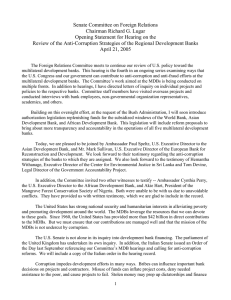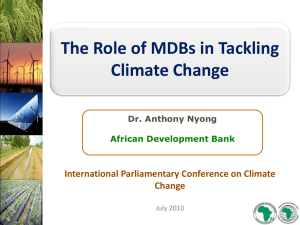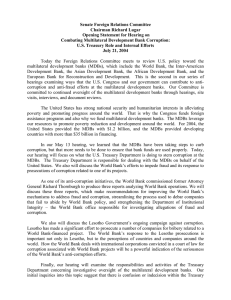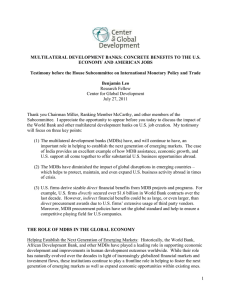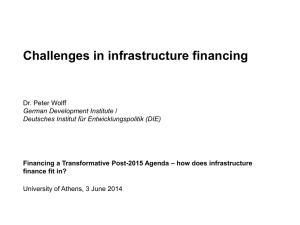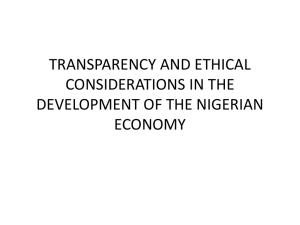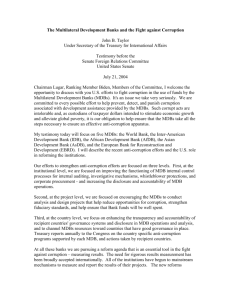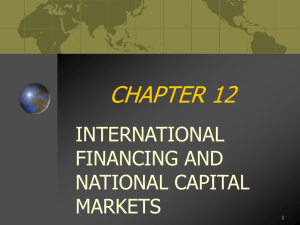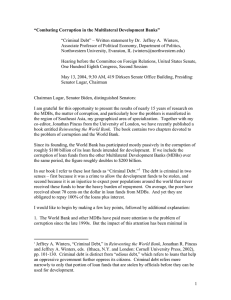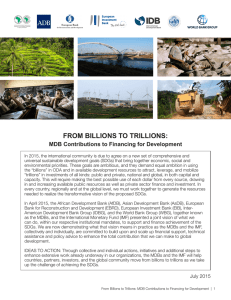Senate Foreign Relations Committee Chairman Richard Lugar Opening Statement for Hearing on
advertisement
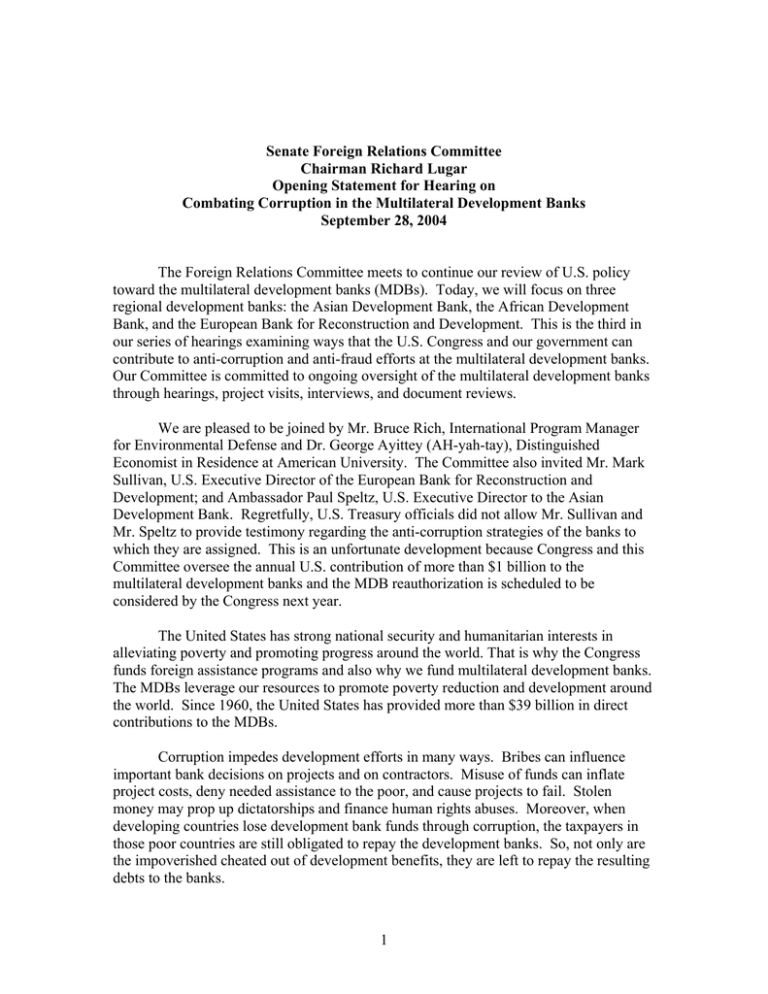
Senate Foreign Relations Committee Chairman Richard Lugar Opening Statement for Hearing on Combating Corruption in the Multilateral Development Banks September 28, 2004 The Foreign Relations Committee meets to continue our review of U.S. policy toward the multilateral development banks (MDBs). Today, we will focus on three regional development banks: the Asian Development Bank, the African Development Bank, and the European Bank for Reconstruction and Development. This is the third in our series of hearings examining ways that the U.S. Congress and our government can contribute to anti-corruption and anti-fraud efforts at the multilateral development banks. Our Committee is committed to ongoing oversight of the multilateral development banks through hearings, project visits, interviews, and document reviews. We are pleased to be joined by Mr. Bruce Rich, International Program Manager for Environmental Defense and Dr. George Ayittey (AH-yah-tay), Distinguished Economist in Residence at American University. The Committee also invited Mr. Mark Sullivan, U.S. Executive Director of the European Bank for Reconstruction and Development; and Ambassador Paul Speltz, U.S. Executive Director to the Asian Development Bank. Regretfully, U.S. Treasury officials did not allow Mr. Sullivan and Mr. Speltz to provide testimony regarding the anti-corruption strategies of the banks to which they are assigned. This is an unfortunate development because Congress and this Committee oversee the annual U.S. contribution of more than $1 billion to the multilateral development banks and the MDB reauthorization is scheduled to be considered by the Congress next year. The United States has strong national security and humanitarian interests in alleviating poverty and promoting progress around the world. That is why the Congress funds foreign assistance programs and also why we fund multilateral development banks. The MDBs leverage our resources to promote poverty reduction and development around the world. Since 1960, the United States has provided more than $39 billion in direct contributions to the MDBs. Corruption impedes development efforts in many ways. Bribes can influence important bank decisions on projects and on contractors. Misuse of funds can inflate project costs, deny needed assistance to the poor, and cause projects to fail. Stolen money may prop up dictatorships and finance human rights abuses. Moreover, when developing countries lose development bank funds through corruption, the taxpayers in those poor countries are still obligated to repay the development banks. So, not only are the impoverished cheated out of development benefits, they are left to repay the resulting debts to the banks. 1 In our May 13 hearing, we learned that the MDBs have been taking steps to curb corruption, but that more needs to be done to ensure that bank funds are used properly. Our witnesses provided clear recommendations for the MDBs to minimize leakage of development financing. They recommended changing the incentives at the MDBs so that staff would have less pressure to lend. Witnesses also recommended that the MDBs focus more actively on supervision and auditing of MDB lending. They argued for more transparency in MDB operations and an MDB requirement that borrowers improve transparency within their governments. In our July 21 hearing, we learned that the U.S. Treasury Department does encourage anti-corruption efforts at the MDBs and reviews all MDB loans. Treasury, however, has limited ability to investigate the misuse of MDB funds. According to Under Secretary John Taylor, “The first line of attack, if our staff hears about issues like this, is to work through our executive directors at the institutions.” In written testimony provided to the Committee, Mr. Dennis Schindel, Acting Inspector General for the Treasury Department, advised that “The international agreements that establish MDBs, and the U.S. law that implements the agreements, makes clear that the MDBs possess an effective immunity to the OIG’s authority.” During our July hearing, we also learned that the government of Lesotho was strained financially during its prosecution of corruption related to a World Bank-financed project and that there is not currently a mechanism to assist poor countries that want to prosecute corruption related to their loans. It was suggested that the MDBs harmonize anti-corruption policies and mutually recognize blacklists. For example, a company that is debarred from the World Bank can still receive contracts from the other MDBs. The testimony that we will hear today will be important to the future recommendations of our Committee. The challenge of preventing waste, fraud, and corruption at the MDBs must be tackled with vigor. We welcome our distinguished witnesses and look forward to their insights. ### 2
